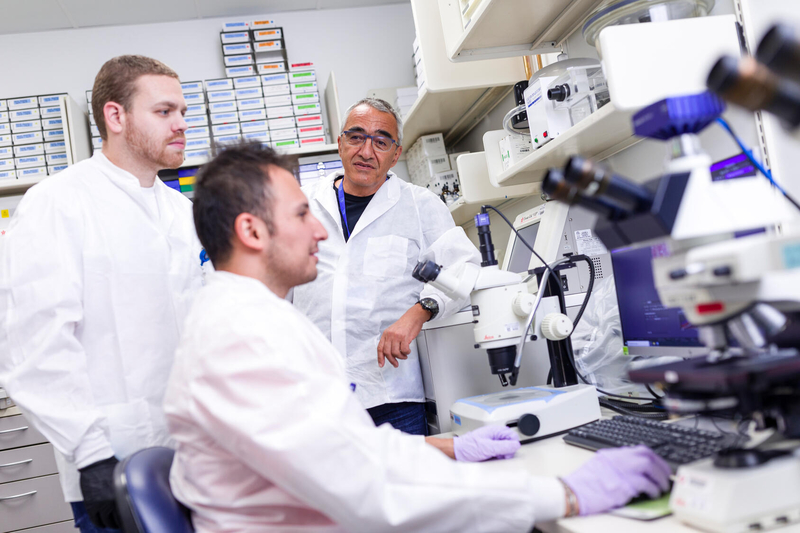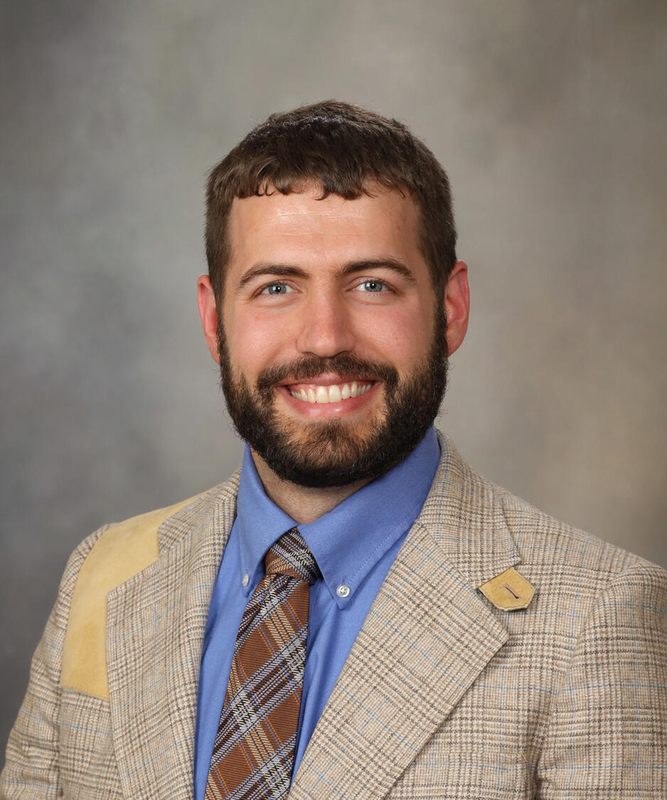
Essentials of Clinical and Translational Science (ECaTS)
Self-Paced Online
7/14/2025 - 7/14/2027
$600
30 Hours
Mayo Clinic's Essentials of Clinical and Translational Science (ECaTS) course is designed to provide medical professionals the research terminology, methods and processes, biomedical statistics, and clinical epidemiology that informs how to review medical literature critically and how to identify meaningful, significant, and accurate new knowledge.
Summary
Essentials of Clinical and Translational Science, ECaTS, is delivered in two separate Units, Principles of Clinical Epidemiology and Statistics in Clinical and Translational Science. This course is appropriate for learners at any level of clinical and translational science interest. The program is available online anytime, anywhere, and is designed to be completed in 30 hours.
- Principles of Clinical Epidemiology: This section will present basic terminology and methodological concepts in epidemiology from a clinical perspective. Topics will include issues related to measurement (reliability, validity), testing (sensitivity, specificity), prevalence, incidence, causation, study design (cohort studies, case-control studies, clinical trials), bias and confounding.
- Statistics in Clinical and Translational Science: This section introduces basic statistical methods used in various clinical study designs. Section materials use published or ongoing clinical research studies emphasizing statistical reasoning and concepts. General concepts covered are exploratory data analysis, descriptive statistics, estimation, and inference. Statistical techniques covered are those for comparing counts/proportions, comparing means, and comparing diagnostic tests. Coverage of each statistical technique includes identifying what research questions it can address, verifying that assumptions are adequately met, and determining the limitations of the conclusions.
Learning Objectives
- Critically evaluate and interpret epidemiologic and statistical evidence in clinical and translational research.
- Demonstrate the ability to select appropriate methods, articulate their limitations, and defend analytic approaches in applied research contexts.
- Develop and communicate rigorous, evidence-based arguments using epidemiologic and statistical reasoning.
Please see the curriculum tab for a detailed look at the course topics and completion criteria.
Access to this online course is available from the date of purchase until it expires on 7/14/2027.
The ECaTS online self-paced course is divided into two Units. The learning objectives and lesson topics for each unit are below.
Principles of Clinical Epidemiology
Learning Objectives
- Apply and interpret the results of a variety of epidemiologic methods. This ability should assist students in reading and writing scientific articles and in writing research grant applications.
- Describe the problems and pitfalls of applying epidemiologic methods to real questions. The focus is on the etiology and natural history of complex diseases.
- Articulate that epidemiologic evidence is uncertain and that any epidemiologic finding or observation depends on the methods used.
Lesson Topics
- Introduction and Foundations
- The Population Survey: Incidence and Prevalence
- The Population Survey: Time, Place, and Person
- Bias and Causal Inference
- Confounding, Mediation, & Interaction: Beyond X & Y
- The Case-Control Study
- The Cohort Study
- The Clinical Trial
Statistics in Clinical and Translational Science
Learning Objectives
- The ability to interpret the results of various basic statistical techniques, including exploratory and inferential methods.
- The ability to recognize, define, and differentiate fundamental statistics concepts, such as variability, distribution, association, causation, sampling, experimentation, confidence, and significance.
- Tools to determine appropriate statistical methods for data and study designs.
- A critical perspective with which to assess and defend statistical arguments such as those in scholarly publications.
Lesson Topics
- Summary Statistics and Graphing
- Confidence Intervals
- Confidence Intervals for Binary
- Introduction to a Hypothesis
- Hypothesis Testing for Continuous Outcomes
- Hypothesis Testing for Categorical Outcomes
- Graphs for Diagnostic Testing and Survival Data
To complete the ECaTS program, you must review all content, achieve a score of 80% or higher on the summative exam and all lesson quizzes, and complete all surveys. You will be awarded a certificate you can download, print, or share online upon fulfilling these requirements.
Technical Requirements
- Computer with internet access
- Speaker or headset
- Full sized monitor
- Web browser
 |
Walter A. Rocca, M.D., M.P.H.Consultant, Division of Epidemiology, Department of Quantitative Health SciencesProfessor of EpidemiologyProfessor of NeurologyDr. Rocca is a Professor of Epidemiology and Neurology and the Ralph S. and Beverley E. Caulkins Professor of Neurodegenerative Diseases Research at Mayo Clinic. He has served on several expert panels for the National Institutes of Health and other national and international institutions. |
 |
Felicity T. Enders, Ph.D.Consultant, Division of Clinical Trials and Biostatistics, Department of Quantitative Health SciencesProfessor of BiostatisticsTrack Program Director, Clinical and Translational Sciences (CTS)Deputy Director for People and Culture, Mayo Clinic Comprehensive Cancer CenterDr. Felicity Enders is a leader in statistical education for medical researchers at Mayo Clinic and worldwide. She engages in clinical and translational research with nephrology, gastroenterology, and hepatology. In ECaTS, she leads the team in building out the statistics curriculum. |
 |
Travis J. Dockter, M.S.Mr. Travis Dockter earned a bachelor’s degree in mathematics and statistics in 2010 and a master’s in science degree in applied statistics in 2012, both from North Dakota State University. Mr. Dockter joined the Mayo Clinic Cancer Center Statistics section in 2012, where he assists with clinical trials in lymphoma, breast cancer and cancer control/quality of life. Mr. Dockter is also involved with statistical education through the Mayo Graduate School. |
 |
Jeremiah A. Aakre, M.P.H.Mr. Jeremiah Aakre earned bachelor’s degrees in statistics and teaching mathematics from the University of Minnesota-Duluth in 2006 where he was named Outstanding Graduating Senior in teaching mathematics. Mr. Aakre was hired as a Statistical Programmer Analyst at the Mayo Clinic and while working, earned his Master of Public Health degree in Biostatistics from the University of Minnesota in 2014. He was hired as a Statistician shortly thereafter and earned an appointment as Instructor in Biostatistics in 2017. Mr. Aakre collaborates in research surrounding Alzheimer’s disease and is involved with statistical education through the Mayo Graduate School. |
Accessibility
Mayo Clinic College of Medicine and Science strives for fully accessible learning experiences. If you need disability-related accommodations, please contact the Office of Wellness and Academic Support – Disability Access Services at MCCMS.DS@mayo.edu or submit the Accommodation Request form.
Frequently Asked Questions
Who is the intended audience for this course?
This course is appropriate for learners at any level of interest in clinical and translational science.
Is the course geared toward participants internal to Mayo?
The content of this course is geared toward participants both internal AND external to Mayo Clinic.
Is a certificate issued upon completion of the course? If so, what kind?
Attendees will receive a certificate of participation.
Is there a discount for Mayo Clinic employees?
Yes, we are pleased to offer this course at a reduced cost to Mayo employees. Mayo employees should click Login along the top navigation and click on the Mayo Clinic Employee Sign in button. Next, navigate to the course page. The reduced price will be displayed at the bottom of the page. The reduced price will also display when the course has been added to the shopping cart.




